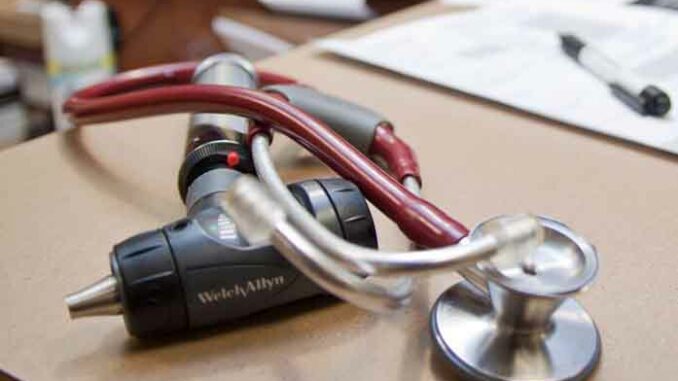
TUCSON — Endometriosis is a chronic, often painful, gynecological disorder affecting 10% to 15% of U.S. women of childbearing age in which tissue normally lining the uterus grows outside the uterus, causing higher incidence of miscarriages and infertility and greater risk of stroke.
Leslie V. Farland, ScD, an assistant professor in the Department of Epidemiology and Biostatistics at the Mel and Enid Zuckerman College of Public Health at the University of Arizona Health Sciences, has been awarded federal funding to study the association among endometriosis infertility and risk of stroke.
Dr. Farland, who is in the college’s Division of Epidemiology, will collaborate with Melanie L. Bell, PhD, a professor in the Division of Biostatistics, as well as colleagues at Michigan State University and Harvard Medical School. Their study is funded by a $442,000, two-year grant from the National Institutes of Health (NIH) that builds on prior endometriosis research supported by an Endometriosis Foundation of America award Dr. Farland received in 2018. She collaborated with public health doctoral candidate William Degnan on that project
A paper co-authored by Dr. Farland, and published in July in a European journal, concluded exposure to breastfeeding early in life, and exposure to secondhand smoke in childhood, were among factors related to endometriosis risk. Another paper, that appears in the June issue of the American Journal of Obstetrics & Gynecology, noted a connection between endometriosis and several adverse pregnancy outcomes, pointing to future research for potential biological pathways underlying these relationships to inform screening or preventive interventions.
About three-quarters of endometriosis sufferers experience pelvic pain during their menstrual cycle. Others also suffer from pain in the lower abdomen, pain during or after sex, spotting or bleeding between periods, digestive and gastrointestinal issues, as well as fatigue.
Dr. Farland said women with endometriosis are at twice the risk of infertility and endometriosis diagnoses represent 20% to 50% of all infertility diagnoses. Recent research also suggests women with endometriosis and women with infertility may be at an increased risk of cardiovascular and other chronic diseases later in life.
Despite a disproportionate burden in women, stroke is particularly understudied in relation to endometriosis and infertility, she points out. Moreover, very few studies have investigated the role of endometriosis in the presence and absence of infertility. Therefore, this study provides an opportunity to investigate endometriosis and infertility as a marker of stroke risk using data from more than 116,000 women in the Nurses’ Health Study II. These women were enrolled in 1989 and contacted every two years to collect detailed information on a variety of health and lifestyle factors. A paper based on that research found that women who experienced endometriosis also were:
1.35 times more likely to need surgery or stenting to open blocked arteries;
1.52 times more likely to have a heart attack; and
1.91 times more likely to develop angina (chest pain).
This research represents the first step toward understanding the association among endometriosis, infertility and stroke burden and the mechanisms underlying these associations. The research team seeks to provide insights that shape future research into etiology, prevention, management and treatment for women with endometriosis.
